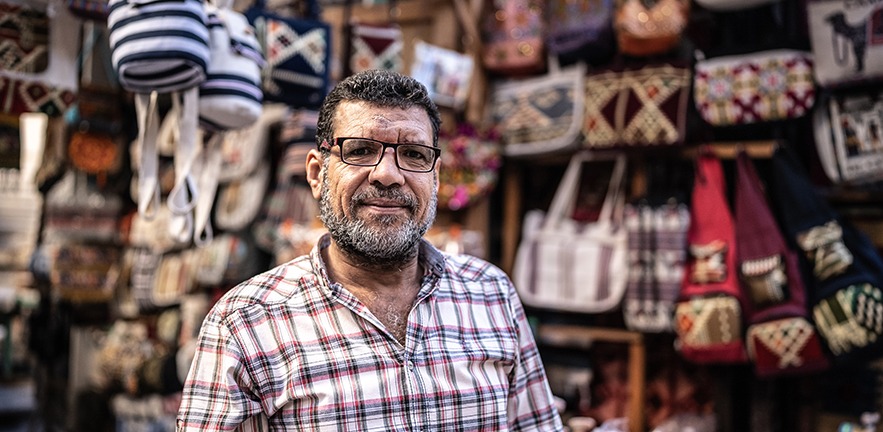People in developing countries who lease rather than simply dwell in their shop premises are far more likely to invest in marketing innovations, finds study co-authored at Cambridge Judge Business School.
The world’s community of “microentrepreneurs” is far from micro. More than 70% of those who earn a living in sub-Saharan Africa and South Asia are self-employed, most of them microentrepreneurs employing 5 or fewer people, and by some estimates more than half the world’s poor make their livings by selling goods and services in this way.
These businesses are informal and precarious, which holds major political ramifications: the Arab world was convulsed in 2010 following the self-immolation of a poor Tunisian fruit and vegetable seller in protests against the country’s then-regime.
Yet the marketing practices of these hundreds of millions of people have scarcely been analysed, as marketing research has focused instead on developed countries with advanced economies.
The link between property rights and small-business performance
A new study co-authored at Cambridge Judge Business School addresses this knowledge gap by establishing a link between property rights and the marketing innovation and performance of this multitude of small enterprises.
The study in the journal Marketing Science finds that those who lease their premises and thus have some property stability are substantially more likely to innovate in key marketing areas such as product, price and promotion than those who simply “possess” or “dwell” on their premises and have little or no property rights. Such marketing innovations, designed to differentiate enterprises from competitors and increase profits, include splitting up a bulk package of goods, strategic price cuts, and in-store displays to increase footfall.
“The risk of expropriation linked to possession results in less marketing practice innovation and poorer performance,” the study concludes.
Why the findings are important for communities around the world
The findings are important in understanding enterprise in the developing world. Most urban slums in cities ranging from Kolkata to Cairo to Cape Town are made up of such possessors or dwellers with little formal rights to the land on which they live and run their businesses.
“The risk of bulldozers arriving with little notice to flatten her store is fairly low on the list of concerns of a marketer in a developed country,” says the study. “By contrast, such risks are not at all inconceivable for many emerging-market microentrepreneurs, who hold few formal rights to the property from which they work.”
A lease seems very secure to someone who has very little

And while leasing a store may not seem very secure to people in developed countries with widespread property ownership, the distinction between leasing and dwelling makes a big difference for a shopkeeper in a poor country.
“A microentrepreneur’s most productive asset is their store premises, and someone leasing such premises can reduce the probability of losing that asset by making timely lease payments,” says study co-author Jaideep Prabhu, Professor of Marketing at Cambridge Judge Business School. “In many developing countries those who dwell in premises – whether owned by the government or a third party – can do little to prevent expropriation with little or no notice in various circumstances including property development.”
Focusing on a Cairo slum and an Egyptian land-use law
The study focuses on the large Cairo slum of Ezbet Khairallah, built in the early 1970s on two square kilometers of land and home to 650,000 inhabitants, mostly migrants from Upper Egypt and the Delta region. Among the study’s sample, women comprise 60% of the total and 52% have not completed primary school. The researchers make use of a change in property-rights laws in Egypt to help establish whether a microentrepreneur in the Cairo slum is a lessor or has any other types of property rights.
The study concludes by suggesting that governments in developing countries offer creative leasing programmes as they address deeper issues surrounding formal property rights. Microentrepreneurs not only run small businesses but are part of supply chains for bigger companies, so enhancing the productivity and profits of microentrepreneurs has “beneficial ripple effects” elsewhere.
The study
The study – entitled “When bulldozers loom: informal property rights and marketing practice innovation among emerging market micro-entrepreneurs” – is co-authored by Magda Hassan of Alliance Manchester Business School, who earned her PhD at Cambridge Judge Business School; Jaideep Prabhu of Cambridge Judge Business School; Rajesh Chandy of London Business School; and Om Narashimhan of the London School of Economics.


